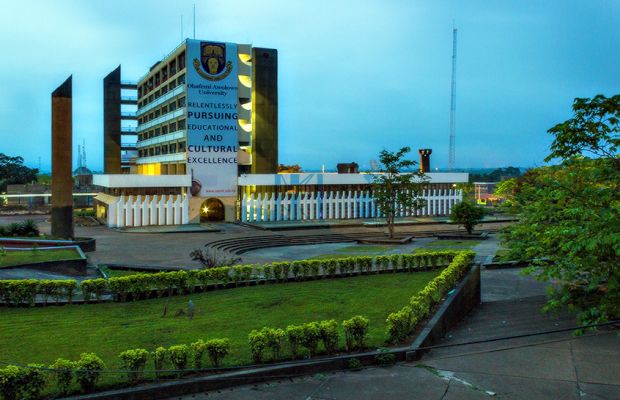President Bola Ahmed Tinubu has issued a clarion call to Nigeria’s universities: shift from theoretical discourse to tangible, solution-oriented research that directly addresses the country’s socio-economic challenges. Speaking on July 6, 2025, via Professor Abdullahi Yusuf Ribadu, Tinubu highlighted the urgent need for academia to bridge the gap between innovation and impact.
This charge is timely. Though Nigeria invests substantially in higher education research, data from the National Universities Commission (NUC) shows that fewer than 15% of funded university projects find real-world applications in industry or government. The cost of this disconnect is evident across sectors: food insecurity persists despite robust agricultural research; youth unemployment remains high even as universities produce job-ready graduates; insecurity continues despite academic insights into peacebuilding.
Table of Contents
₦200 Billion Infusion into Research: A Call for Results
This year alone, the Federal Government, through the Tertiary Education Trust Fund (TETFund), has allocated over ₦200 billion towards research in agriculture, security, education, and other strategic sectors. Yet, with less than one in six research projects implemented, the nation risks squandering its investment on studies that never leave the page.
President Tinubu stressed that Nigeria’s 260+ universities must evolve beyond insular academic pursuits and become central to solving the nation’s most pressing problems, including food shortages, terrorism, and graduate unemployment.
From Funding to Food Security: Jigawa as a Model
Jigawa State is setting an example. In collaboration with the Federal University Dutse, the state is conducting agricultural research aimed at enhancing smallholder productivity, mitigating climate risks, and reducing post-harvest losses. Given that over 80% of Jigawa’s population relies on farming, this partnership could signal a revolution: one that modernises agriculture, retains the youth in rural communities, and boosts food supply.
Governor Umar Namadi emphasises that this project isn’t university-led alone; it’s an integrated government-academia effort to achieve food sufficiency and stimulate local economies.
Why Implementation Rates Lag
Experts point to several obstacles:
- Weak Government-Academia Liaison: Universities often lack the incentive or structure to transition research into policy or commercial use.
- Limited Industry Engagement: Without active industry partnerships, research rarely finds market relevance.
- Bureaucratic Hurdles: Cumbersome procurement and regulatory processes stall the deployment of academic solutions.
This disconnect manifests in worrying national statistics: youth unemployment stands at an alarming 33% and food prices continue to soar, with inflation surpassing 40%.

A Broader Innovation Agenda: VC Grants, Drones, Tech Universities
The president’s research drive aligns with other initiatives aimed at energising Nigeria’s research ecosystem:
- Student Venture Grants: A new N50 million venture capital grant, managed via TETFund and the Bank of Industry, will support STEMM students in scaling their business ideas starting later this year.
- Drone and Security Tech: Tinubu has encouraged universities to research defence technologies, including drones, to strengthen national security.
- New Technical Universities: Earlier in the year, Tinubu approved the establishment of two federal universities: one in agriculture & development studies (Iragbiji, Osun) and another in technology & environmental sciences (Iyin‑Ekiti), enhancing educational reach in Nigeria’s core sectors.
Strategic Gains: Building Nigeria’s Home‑Grown Economy
This vision echoes Tinubu’s long-standing emphasis on a “home‑grown” economy rooted in local innovation. In 2023, he urged universities to rejuvenate curricula, embrace government‑industry collaboration, and embrace technological advancement to build a robust, solution‑driven academic landscape.
Government Response: Strengthening the Innovation Pipeline
To ensure research translates into real-world outcomes, key steps are underway:
- Establishment of an RICC: A Research and Innovation Commercialisation Committee will be anchored by TETFund and the Bank of Industry, tasked with nurturing university‑led ventures and supporting them with capital, policy frameworks, and IP protections.
- Institutional Reforms: NUC is collaborating with universities to revamp curricula and enforce minimum standards (CCMAS) that prioritise applied skill development.
- Infrastructure & Digital Expansion: Ongoing upgrades—including fibre‑optic connectivity at NOUN and state‑level research facilities—create an environment where digital and field research can thrive.
The Stakes for Nigeria’s Future
At a moment when Nigeria confronts food insecurity, unemployment, and rising insecurity, the pressure is on universities to deliver results. The president’s message was clear: spending on research must produce a measurable impact. He urged universities not simply to generate papers, but to catalyse clean food systems, technology‑led enterprises, and community security.
By aligning academia with industry and government, Nigeria has an opportunity to shape a home‑grown economy fuelled by innovation, entrepreneurship, and data-driven policy.
What Must Be Done: A Roadmap for Academia
To ensure “universities drive development through research,” key priorities must be:
- Deepening Industry Partnerships: Collaborative research agreements, advisory boards, and internships ensure academic work is demand‑driven.
- Commercialisation Incubators: Universities should house tech hubs and VC partnerships to incubate successful applied research.
- Policy Integration: Academic findings should inform government at the federal and state levels through white papers, advisory councils, and pilot projects.
- Sustainable Funding Models: Beyond one‑off grants, long-term funding streams must support research, prototypes, and scaling.
- Entrepreneurship Education: Curricula should embed practical teaching in IP, business modelling, and scaling innovations.
The Way Forward: Tracking Success
As Tinubu’s administration advances its renewed‑hope agenda, indicators of success will include:
- Increase in research adoption rate (from <15% toward 50% or higher)
- Growth in university‑anchored startups and spin-offs
- Decline in malnutrition, youth unemployment, and insecurity attributable to university‑led interventions
- Expansion in STEMM VC grants and participation

Conclusion
President Tinubu’s directive is more than rhetoric—it’s a strategic pivot for Nigeria’s universities to become engines of development. The ₦200 billion investment, the launch of venture grants, and the establishment of specialised universities form a powerful trifecta. But the true measure of success lies in outcomes: bountiful harvests, thriving startups, secure communities, and empowered youths.
To see “universities drive development through research” isn’t just an SEO-friendly phrase—it’s a rallying cry for a generation of scholars, leaders, and innovators ready to pioneer Nigeria’s next chapter.
Join Our Social Media Channels:
WhatsApp: NaijaEyes
Facebook: NaijaEyes
Twitter: NaijaEyes
Instagram: NaijaEyes
TikTok: NaijaEyes
READ THE LATEST EDUCATION NEWS








































